The 5 rules you need to know when watering a fiddle leaf fig – according to houseplant experts
Fiddle leaf figs can become little divas if you don’t get their watering requirements right, so don't leave things to chance

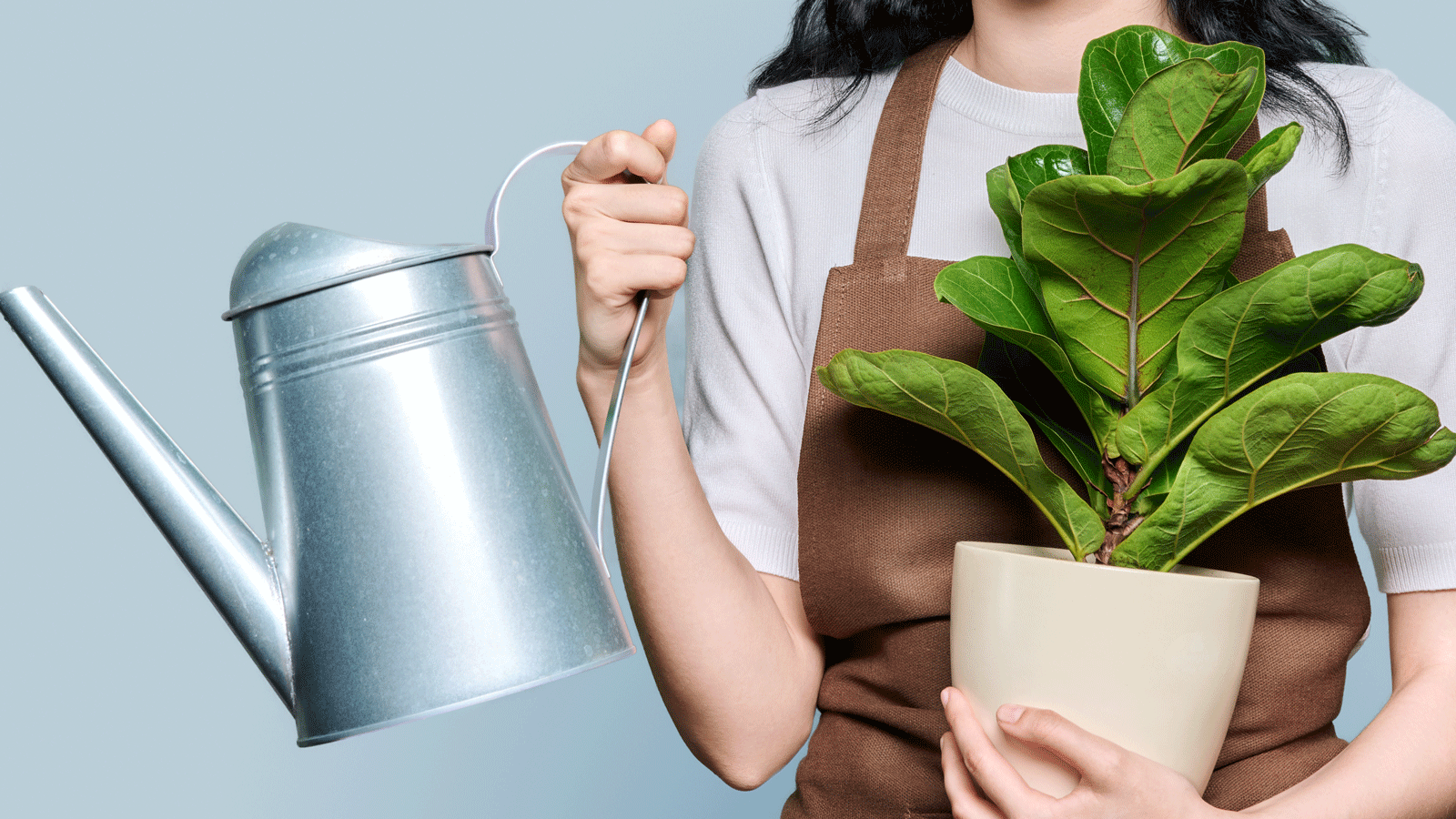
Design expertise in your inbox – from inspiring decorating ideas and beautiful celebrity homes to practical gardening advice and shopping round-ups.
You are now subscribed
Your newsletter sign-up was successful
Want to add more newsletters?

Twice a week
Homes&Gardens
The ultimate interior design resource from the world's leading experts - discover inspiring decorating ideas, color scheming know-how, garden inspiration and shopping expertise.

Once a week
In The Loop from Next In Design
Members of the Next in Design Circle will receive In the Loop, our weekly email filled with trade news, names to know and spotlight moments. Together we’re building a brighter design future.

Twice a week
Cucina
Whether you’re passionate about hosting exquisite dinners, experimenting with culinary trends, or perfecting your kitchen's design with timeless elegance and innovative functionality, this newsletter is here to inspire
It's important to find out what works best for your plant when considering how to water a fiddle leaf fig. This means monitoring your plant carefully, thinking about where you put it, and adopting a watering routine that keeps it healthy and happy.
I love fiddle leaf figs (and I'm sure you feel the same), and I also find them easy to grow. But I have had the occasional problem in the past that I now put down to haphazard watering. From experience I know that if you do get into problems with one of your fiddles it will probably be due to how much water (very likely) or how little water (less likely) you're giving it. So it's important to get the balance right.
How you water is a key part of fiddle leaf fig care. So instead of leaving it to guesswork follow our expert rules to get a proper handle on your fiddle leaf fig’s watering needs.
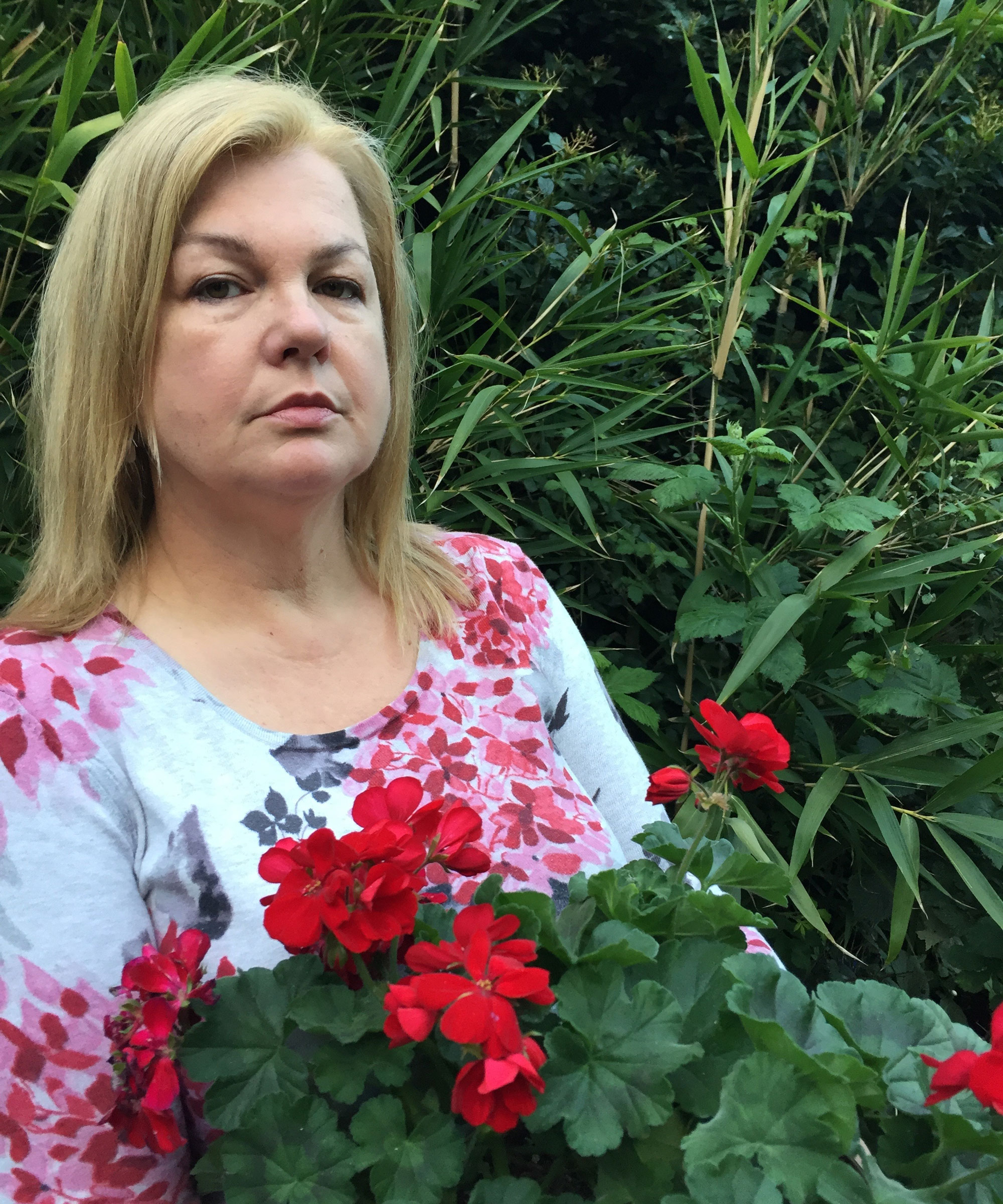
Sarah Wilson has been writing about gardens since 2015, covering everything from garden design to houseplant care. She has studied introductory garden and landscape design as well as floristry. A proud houseplant parent, she enjoys tending to her collection of more than 50 indoor plants. As the owner of quite a few fiddle leaf figs, both large and small, she knows there are no short cuts when it comes to watering them in the correct way.
5 rules to remember when watering a fiddle leaf fig
Fiddle leaf figs are one of the best indoor plants and generally they are pretty easy to care for. They do, however, love routine, which roughly translates as being watered the same amount at the same time every week, or that could be every 10 days or two weeks depending on your individual plant’s needs.
You need to factor in location (sun or shade), season (your plant will be much thirstier in summer) and the size of your plant (bigger = thirstier). So you can see it's not a case of one size fits all when assessing how frequently to water your fiddle plant. And that's why you need our rules on how often you should water yours.
1. Get to know your plant's needs
Fiddle leaf figs are statement plants that deserve to be noticed, especially when it comes to keeping tabs on how they’re doing. Get to know your plant and if you have a whole fiddle family thing going on don’t make the mistake of treating them all equally when it comes to watering or repotting your fiddle leaf fig.
'Watering your fiddle leaf fig is one of the most important elements to keeping it healthy and thriving,' says Lina Cowley of plant experts TrimmedRoots.com. 'Knowing how much to water your fiddle leaf fig can be tricky, but with the right technique, you can keep your plant looking beautiful and green.'
Design expertise in your inbox – from inspiring decorating ideas and beautiful celebrity homes to practical gardening advice and shopping round-ups.
Lots of factors play in to how much water your fiddle needs. A large plant will have a greater water requirement than a smaller variety. You also need to consider how much light and sunshine a fiddle is exposed to (the more sunshine, the more water will be needed), or if it’s located in a dark corner. Either way fiddles will thrive as they are an easy indoor plant, but they’ll have different watering needs.
‘As a general rule, the fiddle leaf fig that needs water will have drooping and browning leaves as the plant withers due to lack of water,’ says Alex Tinsman, from howtohouseplant.com. There can, however, be other reasons why your fiddle leaf fig leaves are turning brown too, so make sure you are up to speed with those.
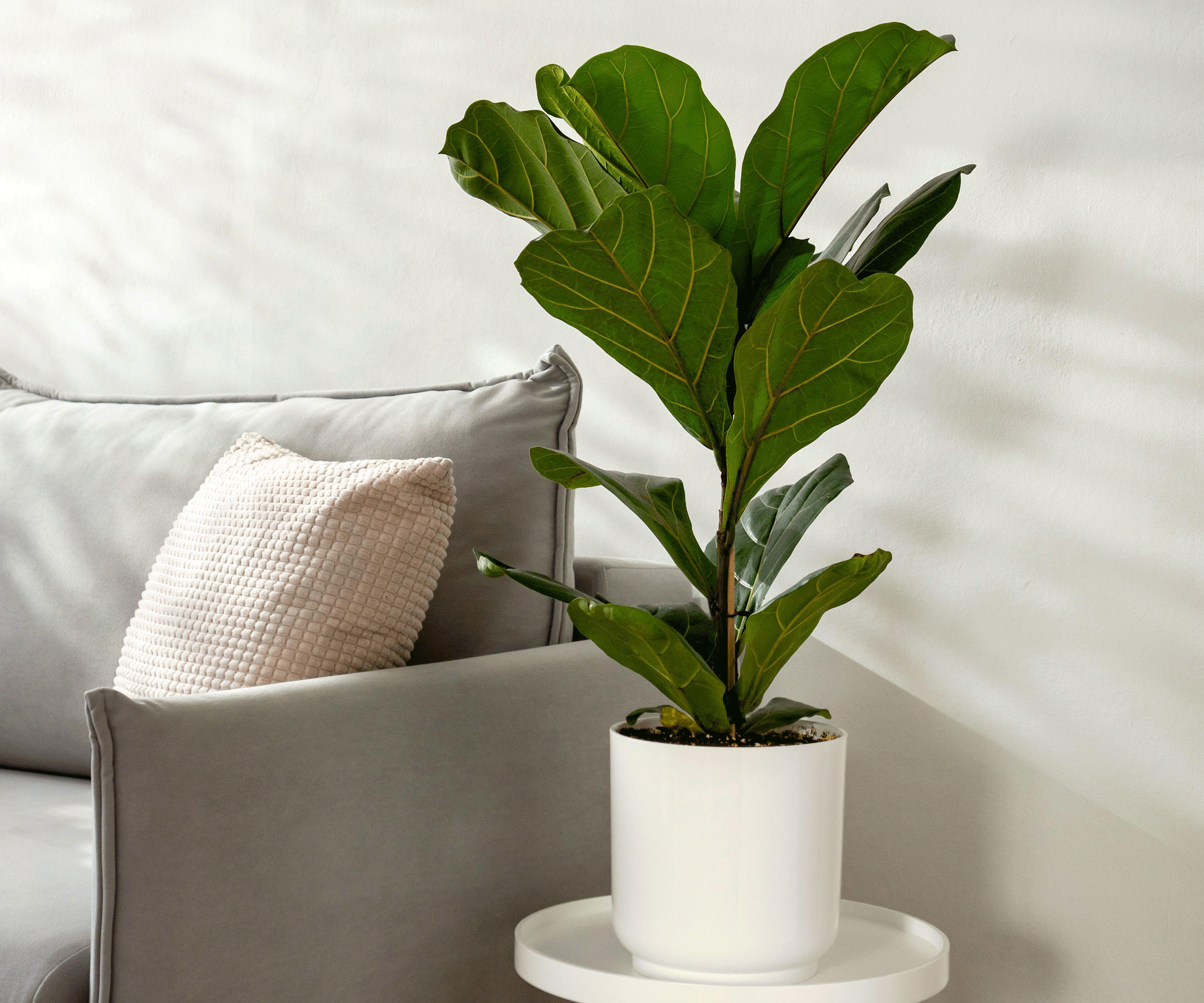
A fiddle leaf fig that's positioned in a light and bright room near windows will need more water than one in a darker room with less natural light
2. Check the soil moisture levels before watering
When you’re getting to know your plant it can all come down to guesswork on the watering front, especially if your fiddle is one of the more demanding bigger types. It must be thirstier right? Not necessarily.
One of the best indications that your plant needs watering is dry soil but how do you know what’s going on with the roots, where water tends to accumulate and can lead to root rot if you’re overdoing it.
‘Generally, we recommend only watering when the top 3-6 inches of soil is dry, depending on the size of the plant,’ says Ayelet Faerman of plant experts Verdant Lyfe. ‘This usually works out to be about once a week. We like to use a moisture meter to ensure the plant does need water and isn't getting overwatered.’
I was new to the idea of moisture meters, and decided to try out this one from Amazon. It’s easy to use – you simply insert it down to root level and it gives you an instant reading. If it’s 4 or less this indicates your plant definitely needs watering.
Alternatively push your finger an inch or two into the soil to test the moisture level. Or try the easy chopstick method. ’You will know if your fiddle plant needs water by inserting a chopstick into the soil,’ says Vladan Nikolic of mrhouseplant.com. ’If the chopstick comes out completely dry, it's time to water your plant.’
3. Use room temperature water
When you think about it this makes perfect sense as we know that extreme temperatures can damage plants. ‘Water that is too cold can cause shock to a plant, which can lead to stress and damage to delicate roots,’ says plant expert Robert Silver of progardening.blog.com.
‘On the other hand water that is too hot can also trigger shock and cause fiddle leaf fig leaves to wilt or discolor.’ Using room temperature water helps to avoid these problems and ensures a stable environment for the plant.
Room temperature water is more likely to be absorbed by the soil more evenly, which can help recovery from overwatering and promote healthy root growth.
I treat my own fiddle leaf figs to filtered water as I live in an urban area which means the water is treated. I prefer my plants to have something a little more pure.
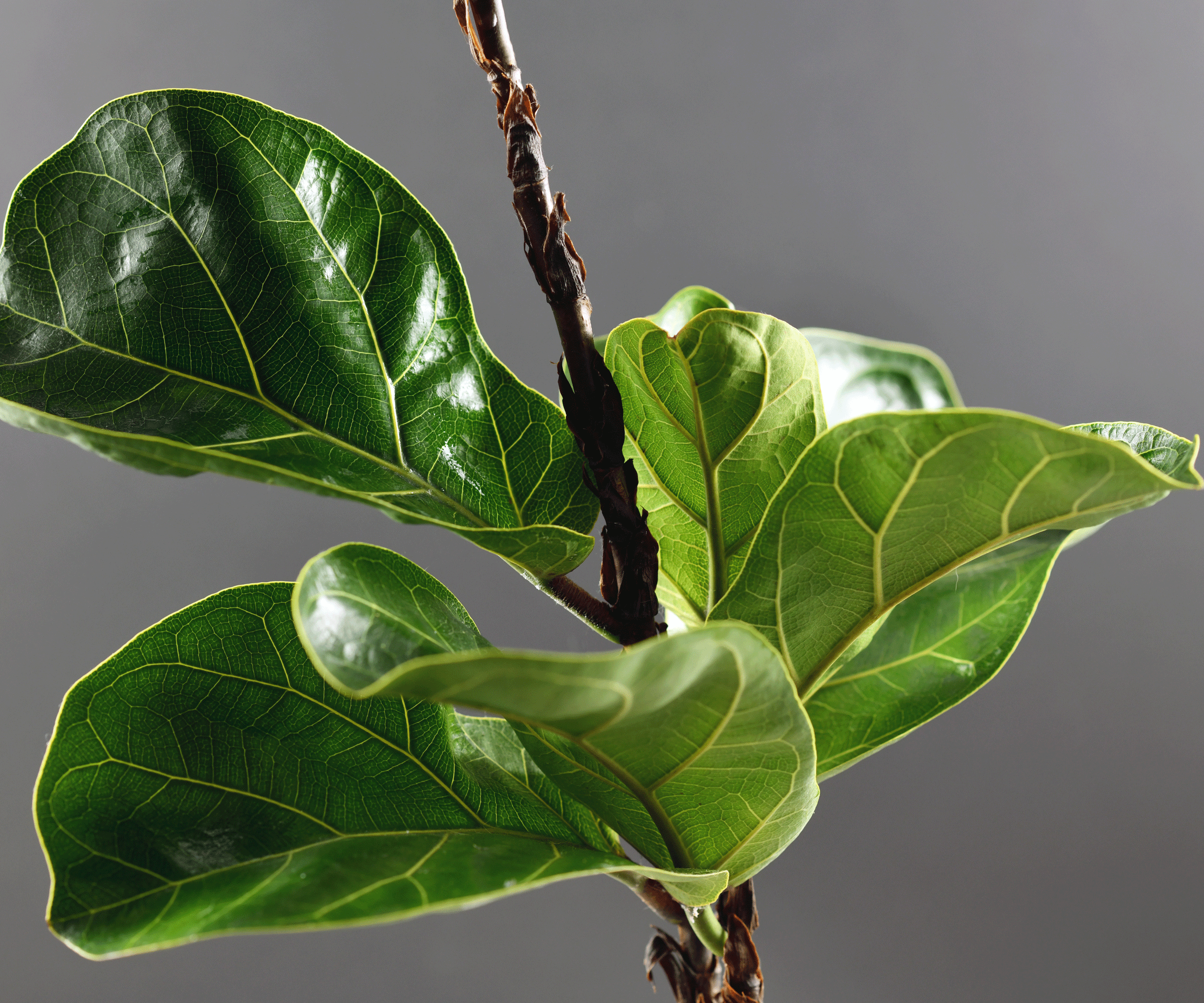
This beauty won't appreciate any shocks from water that's either too hot or cold
4. Give your plant a long drink
The best way to water a fiddle leaf fig is to give it a deep drink once a week. 'Make sure the entire root system gets a decent amount of water,’ says horticulturalist Brody Hall of theindoornursery.com. ‘Ideally, the potting soil should be allowed to dry out between waterings – not bone dry, but dry enough that the soil feels barely damp if you stick your finger in.’
After you water your plant, check your fiddle leaf fig soil an inch below the surface to see if it’s watered adequately. ’This is especially important if you’re using a peat moss-based potting mix since it has a tendency to repel water,’ says Vladan Nikolic. ’So what can happen is that only the top soil gets moist, while the soil underneath stays dry. If this happens, you will need to repeat watering several times.’
5. Have a consistent watering schedule
The watering schedule for a fiddle leaf fig plant and the required amount of water depend on many factors, such as the plant’s size, the size of the pot, the amount of light the plant gets, type of potting mix used, humidity, and temperature.
During periods of low humidity, dry conditions, and high temperatures, you may need to water a little more frequently, perhaps twice a week. Use a calendar note but remember the routine will change according to the season.
The general rule is to let the plant dry out before re-watering. ‘This could be weekly in the summer when temperatures are warmer and reduced to once a month in the winter,’ says Mo Bhula of thebotanicalarchive.com. It’s important to be consistent with your watering as fiddle leaf figs can be temperamental, therefore as soon as the soil dries out, water thoroughly.
To keep your plants in top condition, remember that it's worth cleaning your fiddle leaf fig leaves regularly too.
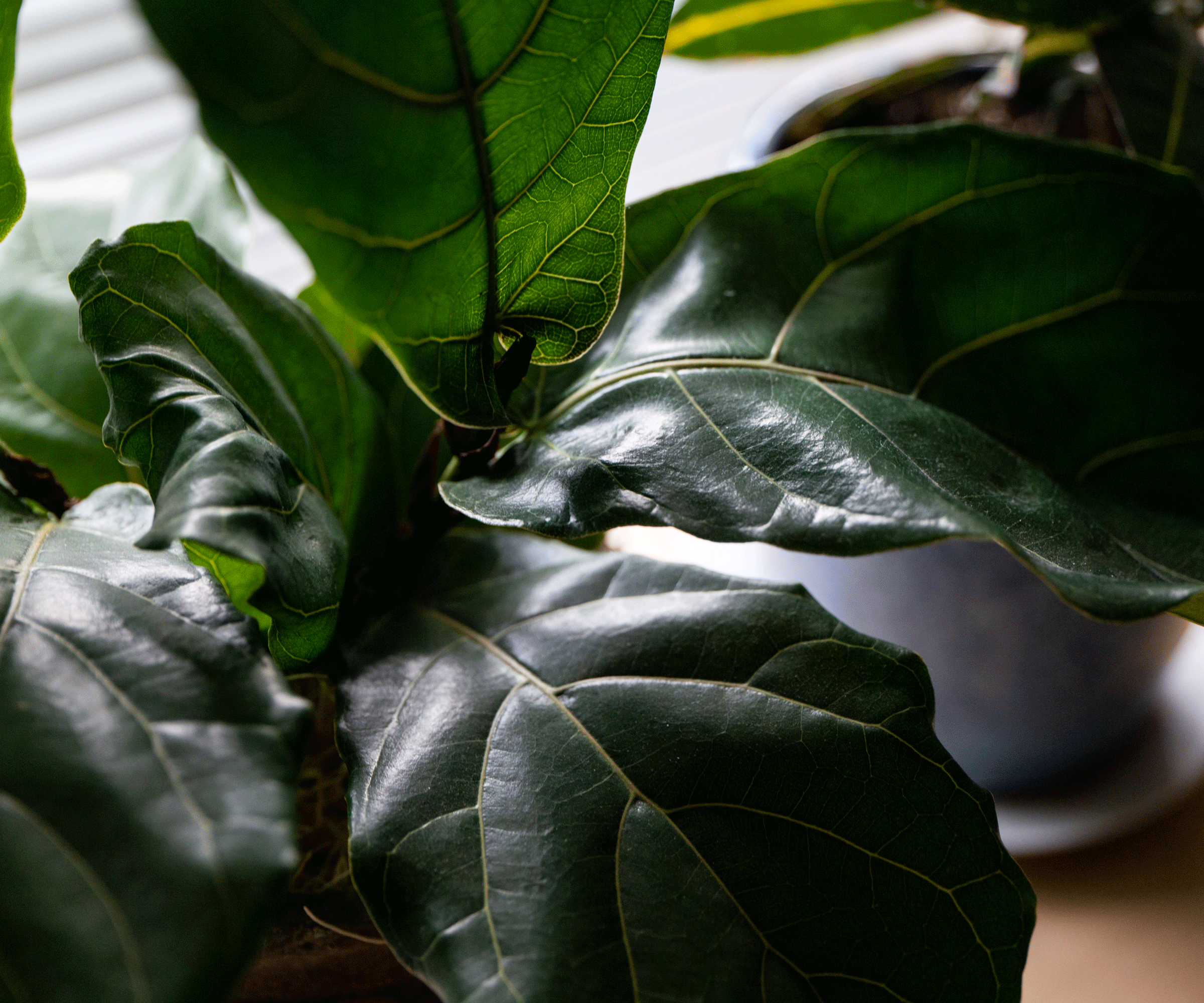
Water regularly and give your fiddle leaf fig plant the routine it craves and you'll be rewarded with the healthiest looking dark green leaves
Should I bottom water my fiddle leaf fig?
Bottom watering is one of the best ways to water a fiddle leaf fig, as it ensures that the entire root system gets a good drink, says Brody Hall of theindoornursery.com. To bottom water, submerge the pot a few inches and allow the soil to absorb the moisture. Typically, this will take 2-3 hours, even less if the potting soil is particularly dry.
There is another plus, according to Robert Silver of progardening.blog.com. 'Fiddle leaf fig leaves are sensitive and can easily get damaged if they get wet. Bottom watering helps to avoid this problem, keeping the leaves dry.
But there is also a downside to bottom watering, according to Vladan Nikolic of mrhouseplant.com. ’The excess salts remain in the soil, which can lead to salt build-up and potential damage to the roots. If you opt for bottom watering, leach out excess salts every couple of weeks by thoroughly watering, waiting for 15 minutes, then watering again several times, letting the water and salts drain out.’
What happens if I water my fiddle leaf fig too frequently?
To maintain healthy soil moisture, aim to keep the soil evenly moist, but not water-logged or bone dry. You can make adjustments to how often you water indoor plants as needed to ensure the best care for your fiddle leaf fig.
‘It's important to avoid watering too frequently, as this can lead to root rot,’ says Robert Silver of progardening.blog.com. ‘It's also important to make sure that the plant is not sitting in water, as this can also lead to root rot.
Telltale signs you might have overwatered your fiddle include root decay, black spots on leaves, and musty-smelling soil. If you spot any of these, take a step back on watering.

Lifestyle journalist Sarah Wilson writes about garden design and landscaping trends for Homes & Gardens. She has studied introductory garden and landscape design, and also has an RHS Level 2 qualification in the Principles of Plant Growth and Development. She is a regular contributor to Homes & Gardens and Livingetc. She has also written for Country Living, Country Homes & Interiors, and Modern Gardens magazines